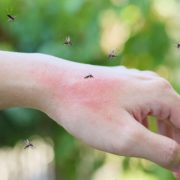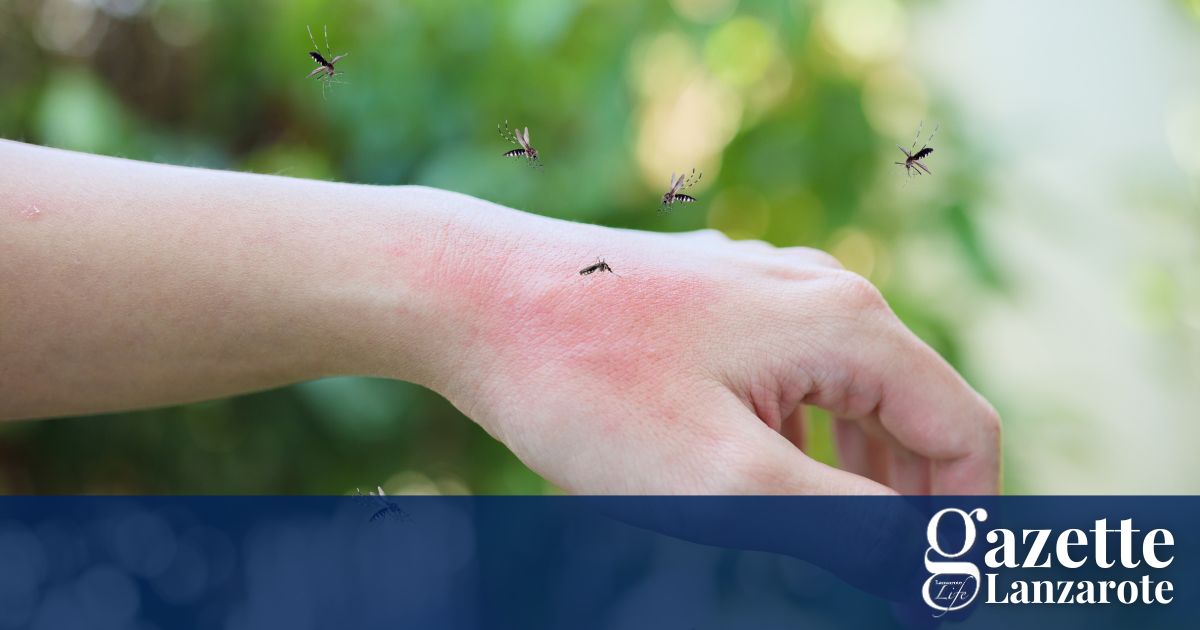Many visitors worry about unfamiliar creepy-crawlies they might encounter on Lanzarote, but the chances of being seriously bitten or stung on Lanzarote are very low. Here are a few of the local wildlife species that you may encounter.
MOSQUITOES
If you get an insect bite on Lanzarote, the chances are that it’s a mosquito. It’s not a serious problem – there is no malaria or dengue fever on the island – but bites can be itchy and become infected.
The mosquitoes that bite are all female, and these girls have a tough life. First, they have to find an animal or human to bite. Then, when they have consumed enough blood to reproduce, they need to find some still water, mate and lay their eggs. About eight days after they’ve hatched, they die.
To avoid getting bitten, take extra care around twilight, when they are at their most active. Close windows or install net curtains or blinds and try and make sure there’s good ventilation – mosquitoes hate draughts, and a fan can be very useful. Repellents can also be effective.
Mosquito plagues are usually highly localised, and always related to standing water, so hotels or councils should be notified of serious problems.
Bite Tip: If you’ve been bitten by a mosquito, one of the best ways to stop the itching that we have found is by applying Bactroban cream. Within approx. 10 minutes the itching will stop and the redness will go within a day or two. This can be bought over the counter at most farmacias on the island.
We haven’t tried it with other itchy bites; however, it works for mosquitos.
WASPS
If you’re scared of wasps, the news is all good on Lanzarote. The yellowand-black striped common wasp is not found on the eastern Canary Islands of Lanzarote and Fuerteventura, although it does live on the greener western islands.
If you do see a wasp on Lanzarote, its appearance may frighten you. The potter wasp is a dark, reddish insect that is larger than the common wasp, and its pointed abdomen looks like it could give a nasty sting. Yet it is completely harmless to humans.
Potter wasps make a nest out of mud and clay, where they raise their young by bringing them caterpillars that they have paralysed with their sting. A nest can cause annoyance if it’s in your building, but there’s no threat to humans.
Bees on Lanzarote are generally found inland and are highly unlikely to sting you.
SPIDERS
A few years ago, British newspapers featured several stories about Canarian False Widow spiders and their terrible bites.
However, the spider is not feared on the islands. It’s relatively scarce, and while it can give a painful bite similar to a wasp sting, it is not poisonous, and the main risk is infection. Confirmed cases of spider bites are very rare, and many of those reported may be infected mosquito bites.
COCKROACHES AND ANTS
Cockroaches are unpleasant, but they don’t bite. Ants are common, but biting varieties generally live in the wild countryside and are unlikely to trouble you.











Leave a Reply
Want to join the discussion?Feel free to contribute!